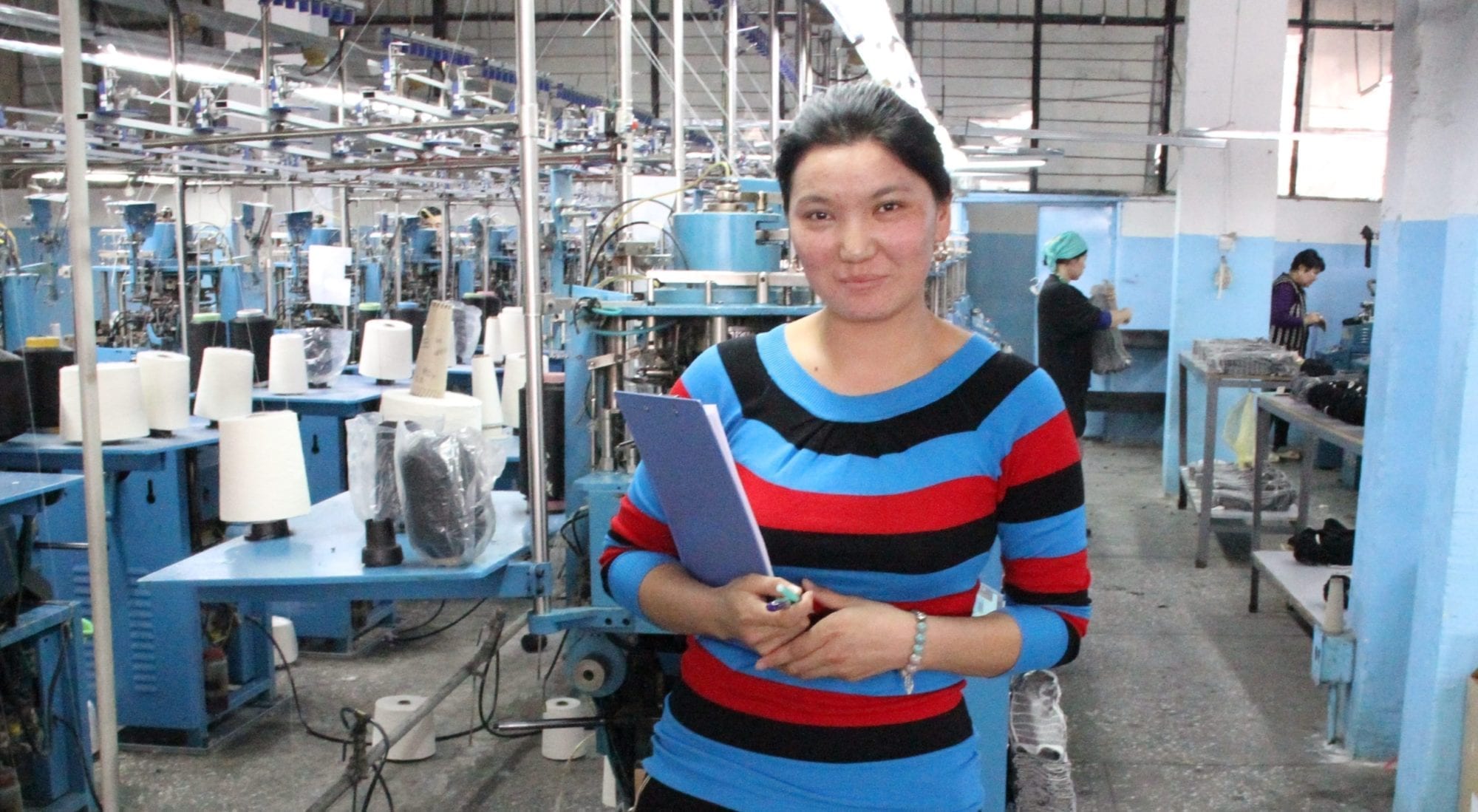
Jul 11, 2017
Kymbat Sherimbayeva was born in Naryn Oblast, a mountainous and very cold region of Kyrgyzstan where most people support themselves through cattle breeding. Seven years ago, 18-year-old Sherimbayeva left her village for Bishkek, Kyrgyzstan’s capital, seeking work.
Youth un- and underemployment stands at 55 percent in Kyrgyzstan. Most young people feel forced to migrate to Kazakhstan, Korea, Russia, Turkey or other countries in search of work, but some young people like Sherimbayeva hope to build their futures closer to home.
After arriving in Bishkek, Sherimbayeva found a job as a knitter at a hosiery factory, where she was soon promoted to head of quality control.
While working at the factory, Sherimbayeva says, she and her some 200 coworkers—of whom 90 percent are between the ages of 18 and 25—became increasingly concerned about inadequate wages and poor safety and health conditions.
With the help of trainings provided by the Garment Workers’ Union of Kyrgyzstan, with Solidarity Center support, workers at the factory realized they could negotiate improvements with management much more effectively as a group than as individuals. “We are stronger when we are together,” says Sherimbayeva.
Workers identified several activist leaders, including Sherimbayeva, who helped organize their coworkers into a union local. This year, workers are negotiating their first agreement with their employer, focusing on better wages and benefits. Sherimbayeva says that workers’ need higher wages because the average monthly salary of $200 does not cover basic expenses. She also hopes to help achieve for her co-workers paid sick leave and a year-end bonus, which are common to workers in Kyrgyzstan but not available to workers at their factory.
Since she and her co-workers organized, Sherimbayeva says they have found it much easier to negotiate improvements with factory management, even before a formal agreement is in effect. For example, in consultation with the union, factory management developed safety instructions for all departments and trained workers on those procedures; hired a local occupational safety and health service; provided protective clothing and other personal safety equipment; and now displays occupational safety and health information in prominent places throughout the factory building.
“Our position is much stronger concerning our labor as well as human rights. Together, we are able to defend workers in a much more effective way,” she says.
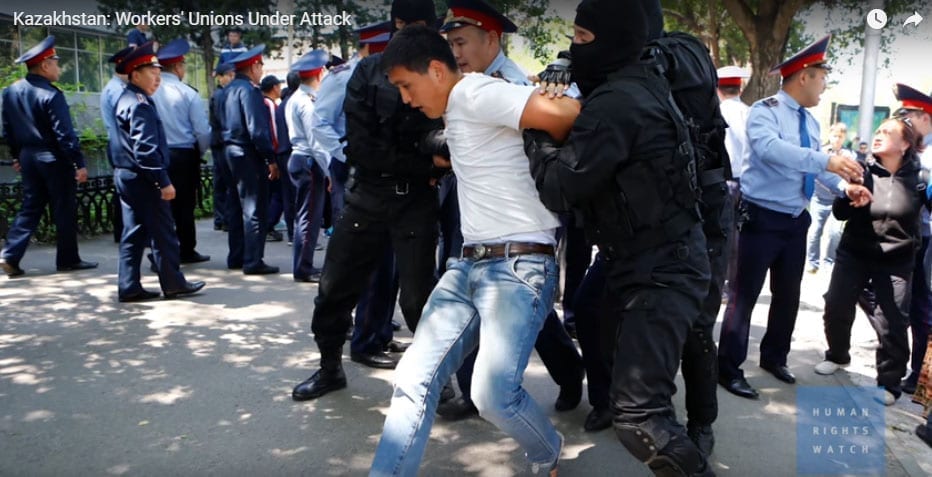
Jul 7, 2017
Two Kazak union leaders who were arrested and imprisoned in January after leading a hunger strike, have been convicted and fined exorbitant amounts for their protest against the government’s liquidation of the Confederation of Independent Trade Unions of Kazakhstan (KNPRK) in favor of a government-aligned federation.
Amin Yeleusinov, chairman of the Oil Construction Company union, was sentenced to two years in prison on politically motivated embezzlement charges and fined $26,300, according to Human Rights Watch. Yeleusinov, 55, is banned from engaging in any trade union activities for five years.
Authorities attempted to make Yeleusinov sign a false confession, and he has fallen ill due to the conditions in his prison cell and the harsh detention regime, according to the International Trade Union Confederation (ITUC).
Nurbek Kushakbayev, KNPRK deputy president, was sentenced to two years prison in a corrective labor colony and fined $80,000. The OCC demanded the fines to pay for “harm” caused to the company. Human rights organizations say the trials were not conducted with due process and evidence acquitting the men was repressed.
(Send an email to management demanding the fines be dropped.)
Kazakhstan’s Attacks on Unions Gains Momentum
Yeleusinov’s conviction is the latest development in an ongoing crackdown on independent labor movement in Kazakhstan, according to Human Rights Watch (HRW), and part of an overall spate of “attacks, harassment and prosecutions as Kazakhstan’s embattled civil society continues to be targeted for exercising fundamental rights.”
The country adopted an onerous trade union law in 2014 that marginalized independent unions in favor of a government-controlled federation. Beginning in 2015, the Kazak government began denying registration of unions in the oil, health, construction, media and education sectors along with regional union bodies, as well as the national independent trade confederation. (See the HRW report on violations of workers’ rights in Kazakhstan.)
Larisa Kharkova, KNPRK chairperson, has been subjected to administrative and judicial harassment since the beginning of this year, and she is now facing what human rights organizations say is a series of trumped-up criminal charges.
‘Foreign Investors Should Recognize Kazakhstan’s Attacks on Workers’
The ITUC has lodged a formal complaint with the International Labor Organization over the union leaders’ imprisonment and over the government’s refusal to recognize the rights of workers to form independent trade unions.
Last month, Kazakhstan hosted an international exposition featuring the theme, “future energy,” a high-profile event expected to draw 3 million visitors, including global wealth leaders. Events like EXPO 2017 “should not distract from the serious human rights problems in Kazakhstan, or from the human costs of the government’s repressive policies,” according to Mihra Rittmann, an HRW researcher in Central Asia.
“Foreign investors–many of whom recognize the importance of upholding international labor standards–should take note that while the government claimed it was creating a better system of social partnerships and modernizing trade unions, the reality is that they decimated Kazakhstan’s independent trade union movement,” says Rittmann.
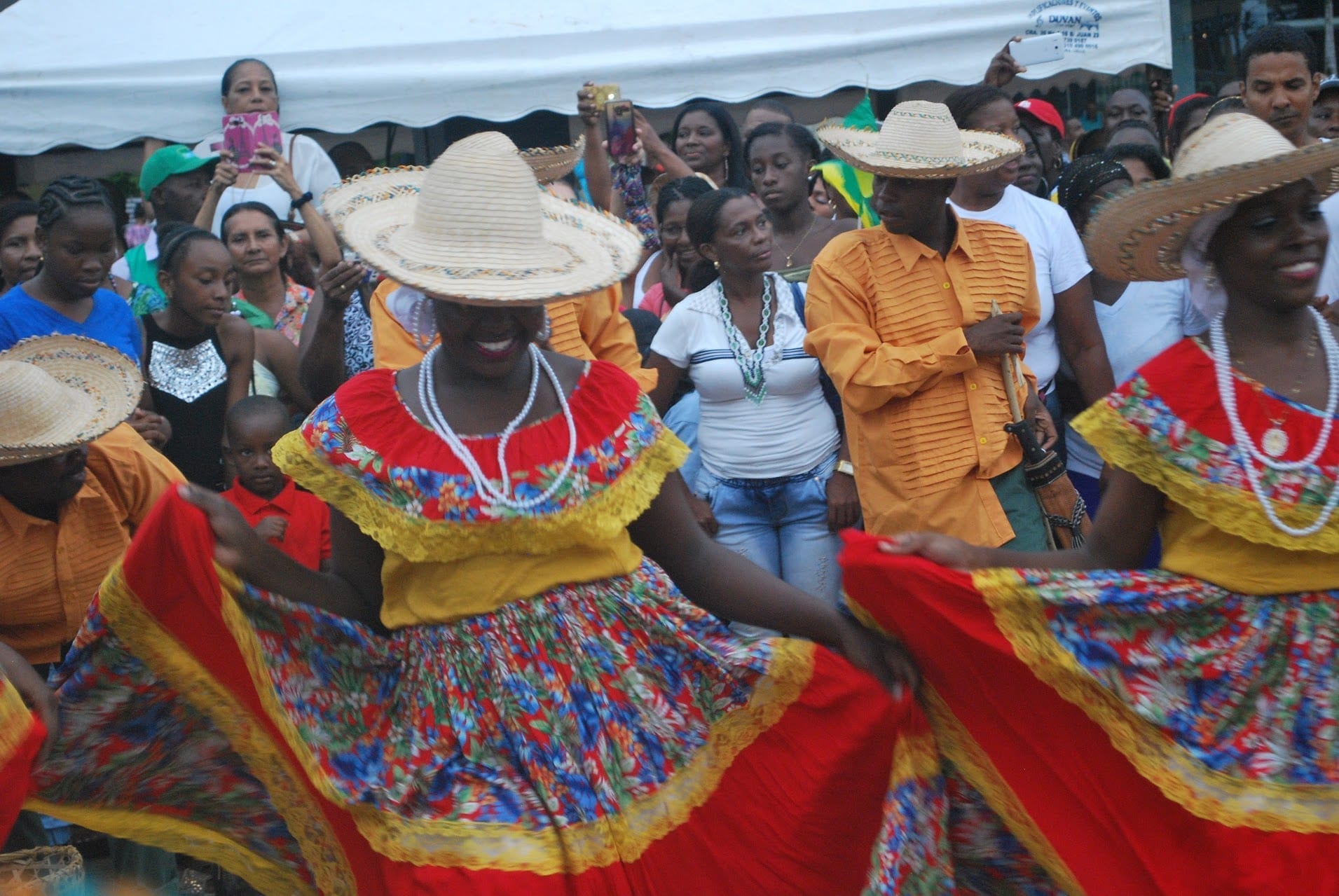
Jun 24, 2017
After 22 days of peaceful protests, workers, unions and other civil society groups in Buenaventura, the country’s largest port city, won a landmark agreement with the Colombian government. On June 6, the government agreed to invest more than $500 million in the long-neglected city over the next decade. United Nations officials, senators and local politicians witnessed the signing of the agreement. A bill securing the funding is scheduled to be submitted to Congress on July 20.
Following the agreement, the elected strike committee, representing a coalition of 66 civil society organizations in Buenaventura, suspended the civic strike for one month to assess the government’s compliance with its pledge. In the lead up to the July 20 deadline, local groups will continue to negotiate decent employment and improved water services, sanitation, healthcare, education, housing and other social initiatives.
On May 16, tens of thousands of peaceful protesters took to the streets demanding peace and dignity after years of neglect by leaders in Bogota, the capital. Many of the port city’s 400,000 predominately Afro-Colombian inhabitants live in abject poverty without access to proper hospitals, schools, roads and other basic services.
Buenaventura’s thriving port accounts for 60 percent of the country’s maritime trade and in 2014, generated $2 billion in tax revenue. Only 3 percent of that revenue is reinvested in the city.
Many residents work in the port without the protection of Colombia’s labor code. The Port Workers’ Union (Unión Portuaria) is pushing to incorporate them into a collective bargaining agreement that would establish direct, indefinite employment contracts that include a living wage and provisions for health and pension benefits.
Beginning on the fourth day of demonstrations, the peaceful protests were disrupted by a national police force crackdown, with 41 reported arrests, dozens injured and at least one death. Human rights groups condemned the government’s decision to deploy riot police against peaceful demonstrations—in a city deprived even of a local, publicly-funded security service.
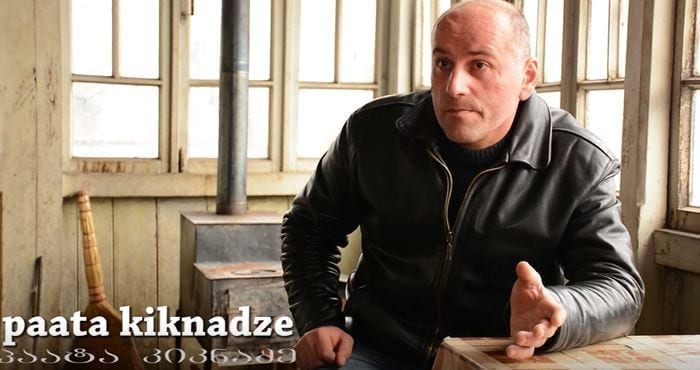
Jun 21, 2017
Nearly 200 railway construction workers in three villages in west Georgia won significant health and safety gains through two agreements with state-owned company China Railway 23rd Bureau Group, according to interviews with several workers in a new Georgian-language video. The company is under contract with the government to modernize Georgia’s Tbilisi-Rikoti railway route, including construction of seven tunnels.
Before the agreements took effect, workers at the construction site in Zvare referred to their section of the project as, “the hell tunnel.” In interviews, they describe how company managers ordered them to enter the tunnel before smoke and dust had cleared from rock-clearing blasts, and how they had not received protective masks and clothing, clean water on the job or paid sick leave.
“There was so much smoke that you cannot see a person in a [three foot] radius, but the attitude of employers is, ’work or go home,’”says one Zvare tunnel worker. “Working there [was] dangerous for life,” confirms Vitali Giorgadze, president of Georgia’s national independent union for railway workers, GRWNTU.
After the agreements took effect, workers reported significant health and safety improvements. “Current conditions are much better than they were before the trade union,” says welder Paata Kiknadze. The agreements committed the company to union-run health and safety monitoring and reporting systems at Zvare, Bezhatubani and Dzirula construction sites, which workers say is key to maintaining the health and safety measures.
With GRWNTU’s assistance, the settlements were reached last fall after workers walked off the job, first in Zvare and later at other construction sites along the route, to protest the firing of two Zvare workers who refused to enter a tunnel filled with scorching dust. Workers walked out again in November, after company representatives allegedly beat five workers in Zvare for, alleges company representatives, gathering firewood on company property.
Assisted by GRWNTU, workers at the Zvare, Bezhatubani and Dzirula construction sites organized into bargaining units, elected leaders and petitioned the Georgian government for assistance to ensure the company ceased violating Georgia labor law. Workers held protest rallies in September in the Georgian capital, Tbilisi, outside the offices of the Georgian Railway department and the Ministry of Labor, Health and Social Affairs of Georgia.
The agreements include additional benefits beyond health and safety improvements. “Before the strike, they did not have the right to [overtime pay and paid] leave,” says Paata Ninua, GRWNTU chief of staff and safety specialist trained under Solidarity Center’s Georgia program, funded by the U.S. Department of Labor. After the strike and the negotiations that followed, Ninua says, these problems were solved.
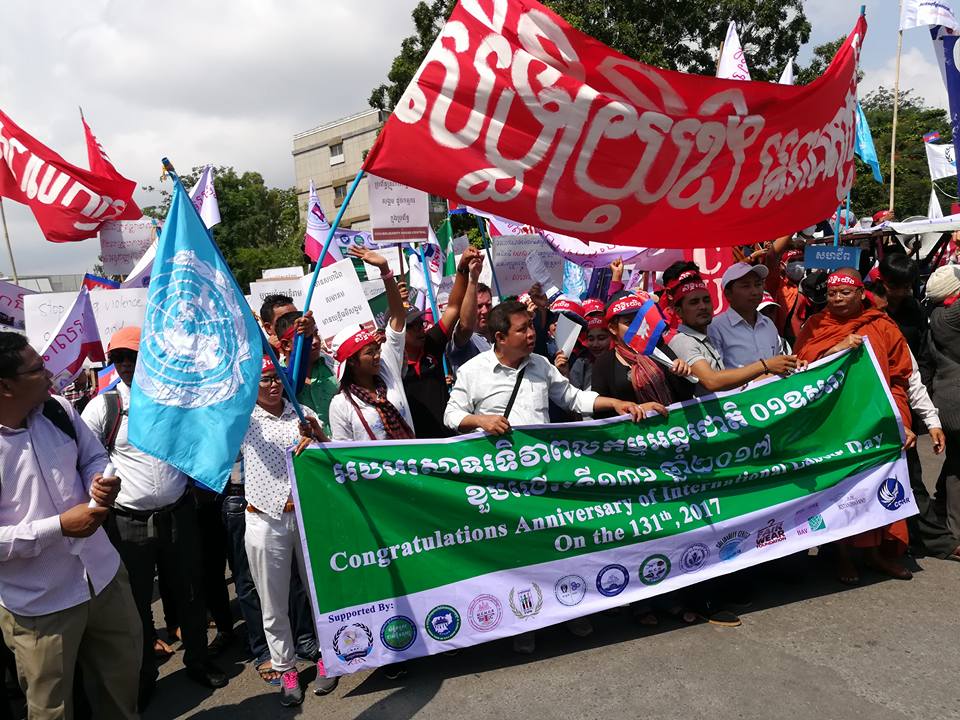
May 1, 2017
From Cambodia to Zimbabwe, in Serbia and Honduras, hundred of thousands of workers and their families are celebrating International Workers Day, honoring the dignity of work and the accomplishments of the labor movement in defending human rights, job stability, fair wages and safe workplaces. Together, workers and their unions are demonstrating their commitment to sustaining and improving worker lives.
Here is a roundup of May Day events by Solidarity Center allies around the globe.
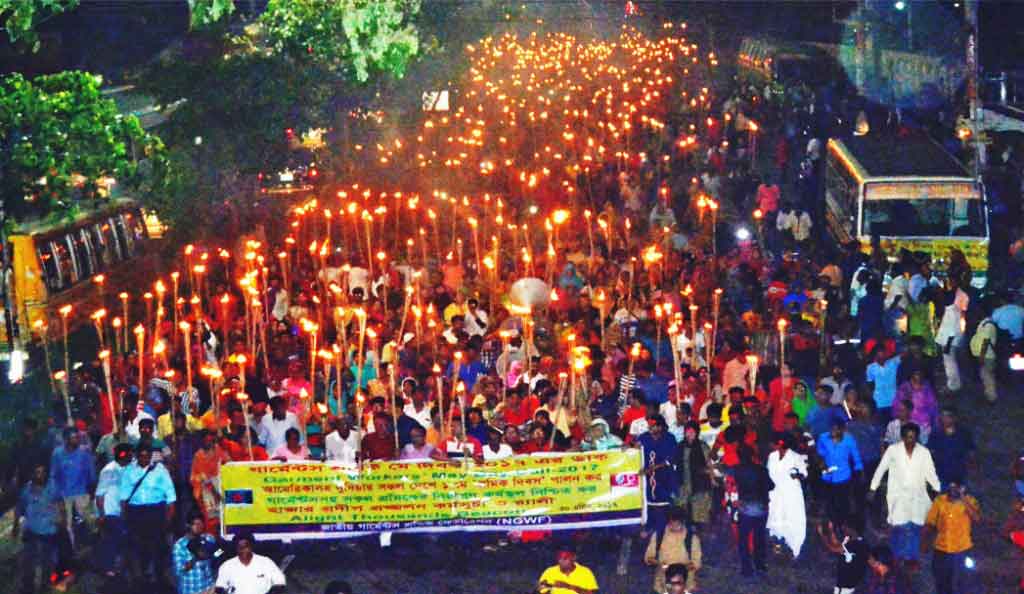
Bangladeshi garment workers lit torches and marched peacefully on the eve of May Day, illuminating the night and workers’ spirits.
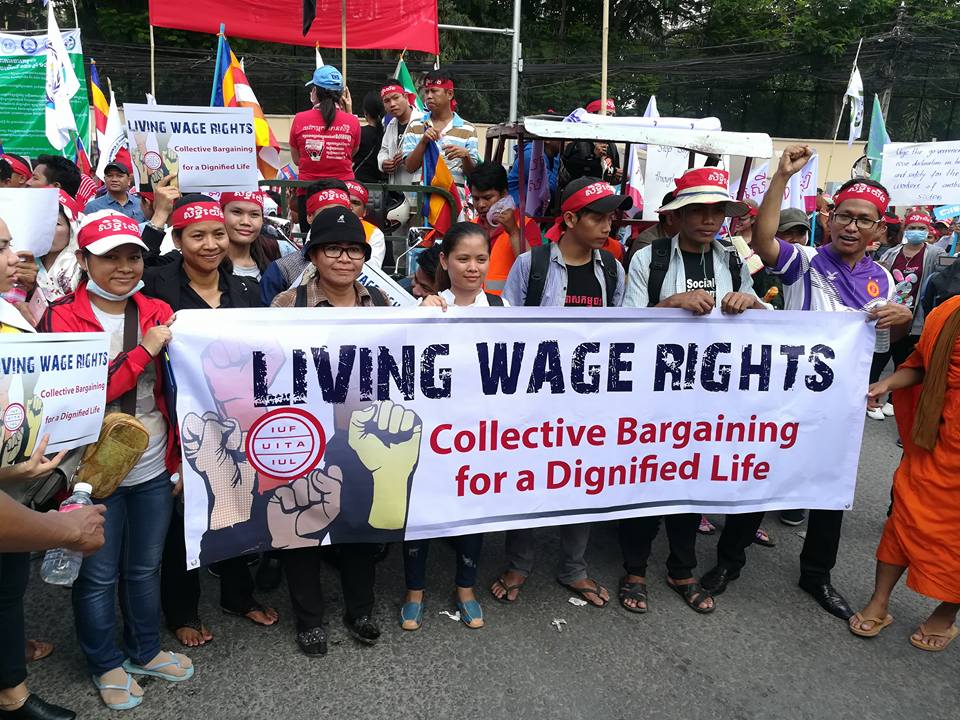
Some 3,000 workers from unions across Cambodia celebrated May Day with a march to the National Assembly, where they submitted a petition demanding construction workers be included under minimum wage and national guidelines for workplace safety. Police and barricades lined the route, and workers initially were ordered to disperse. Ultimately, the crowd was allowed to march to the National Assembly, where a member of parliament accepted their petition and addressed the crowd.
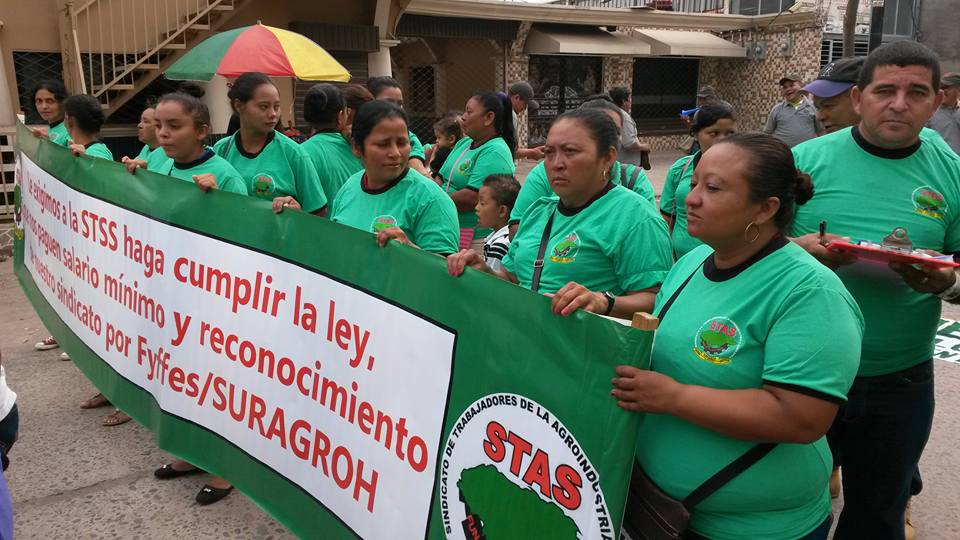
Members of the Honduran agricultural federation FESTAGRO rallied for fair economic policies to enable workers to earn family-supporting wages, and an end to violence against union leaders and members.
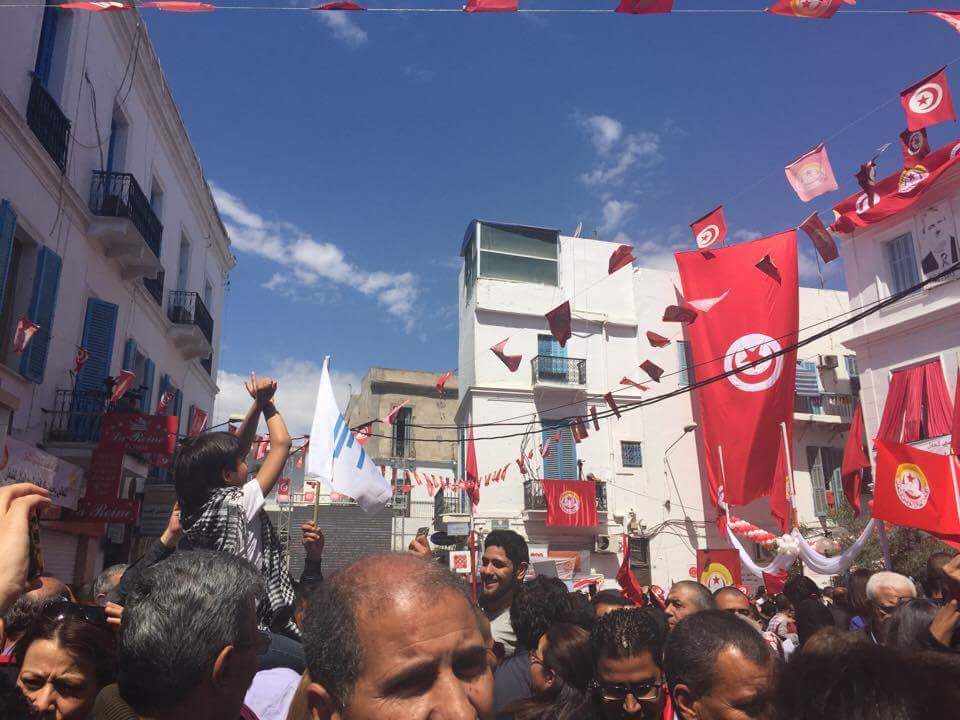
In Tunisia, workers rallied at the country’s union federation, Union Générale Tunisienne du Travail (UGTT), and marched down Avenue Bourguiba after UGTT General Secretary Noureddine Taboubi highlighted improvements for workers achieved through their unions.
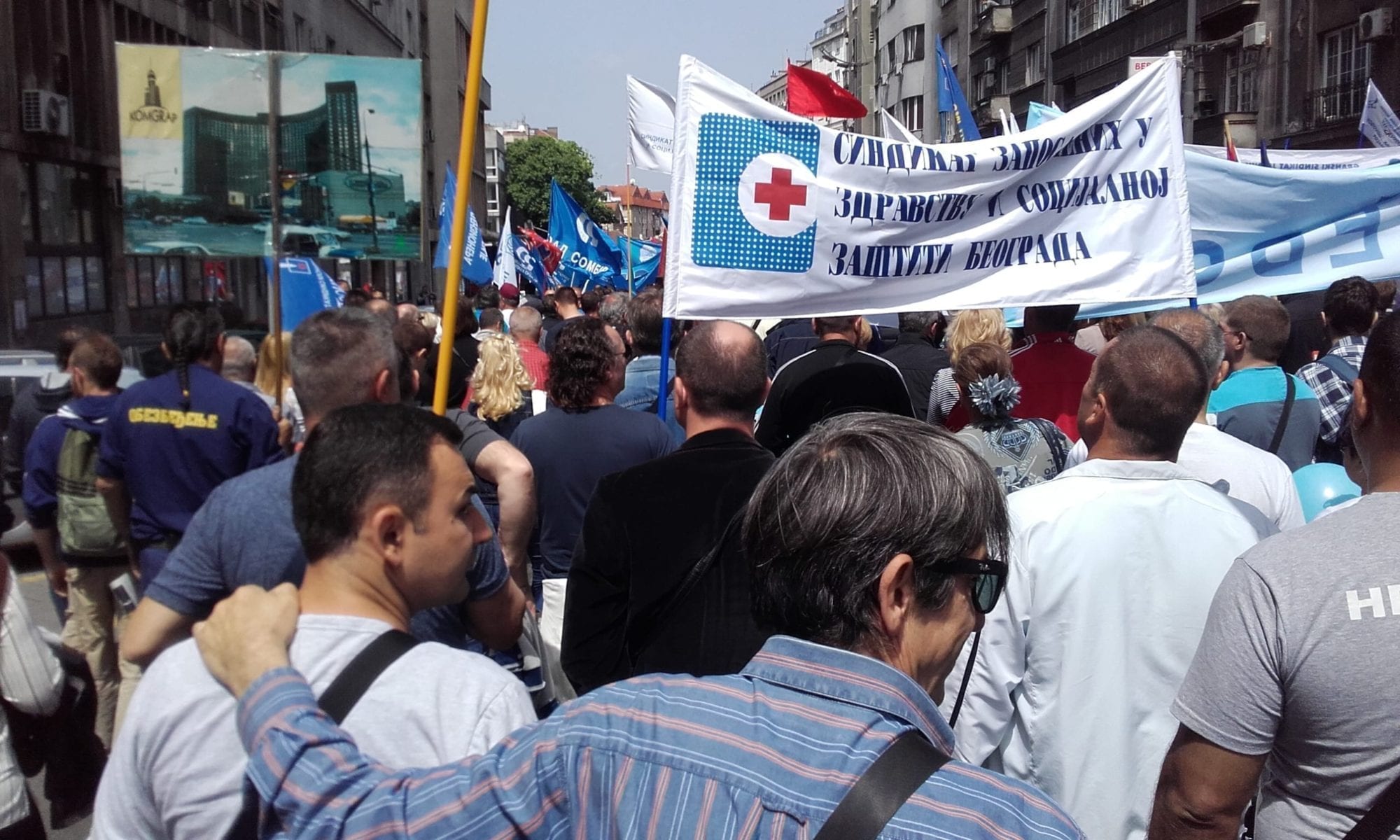
In Serbia, some 3,000 workers took part in a May Day rally and march sponsored by the Confederation of Autonomous Trade Unions of Serbia and the United Trade Union Nezavisnost. Workers emphasized the need for economic reform to create good jobs, a secure retirement and improved employment prospects for young people to encourage them to stay in Serbia.
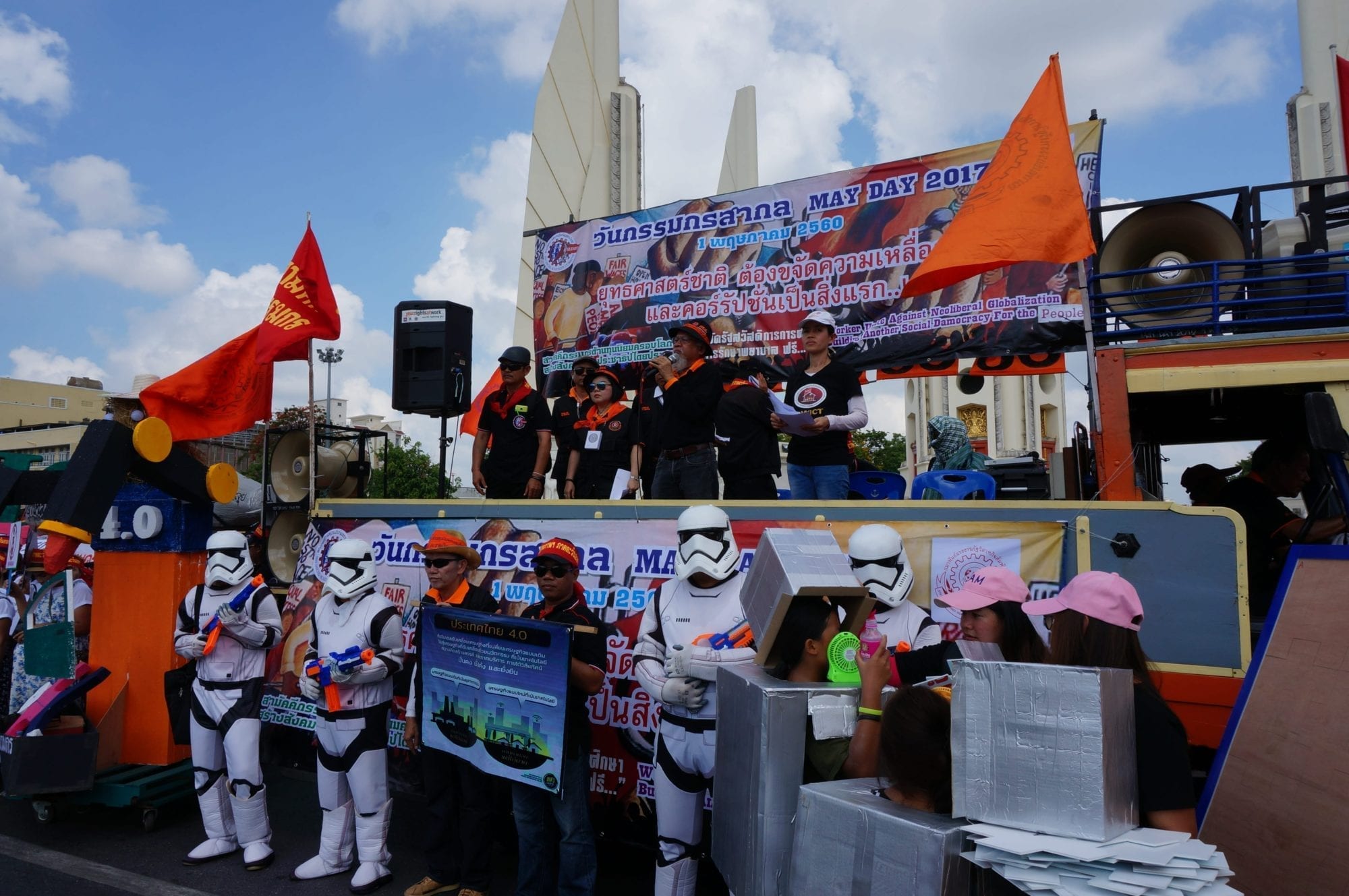
Thai workers marched nearly a mile from the Democracy Monument to the United Nations Building to demand the Thai government expand human and worker rights for all, including the country’s millions of marginalized workers struggling to support their families in the informal economy as pedicab drivers, market vendors and in other precarious wor
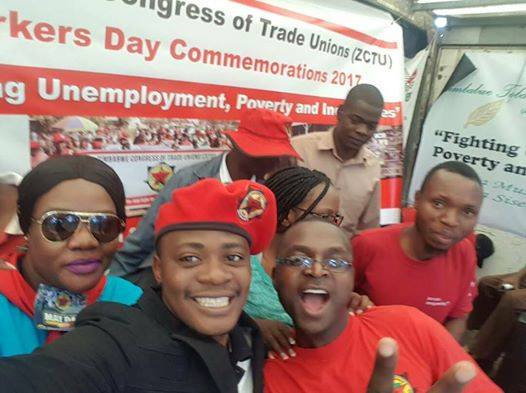
Across Zimbabwe, workers took part in May Day events to celebrate improvements at the workplace won through their unions. The Zimbabwe Congress of Trade Unions has led efforts to end unemployment, inhumane working conditions and wage theft.
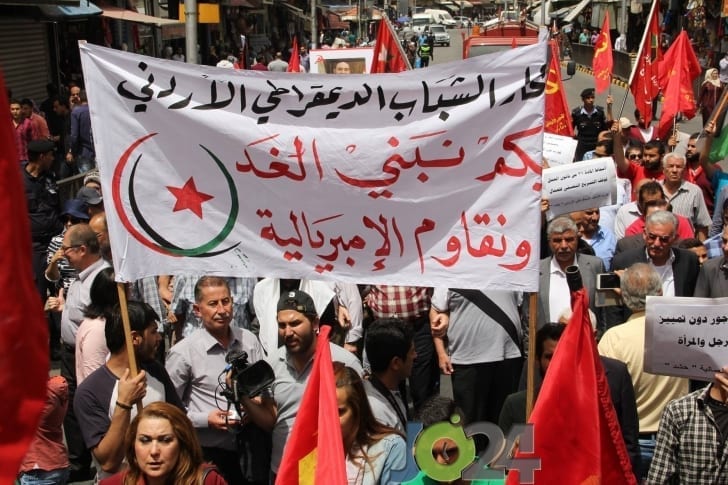
Workers in Jordan rallied and marched, calling for changes to the country’s labor law to protect worker rights, union freedom to organize and dignity on the job, and to provide social protections for all Jordanians. In Brazil, below, workers also got an early start May 1 commemorations with a massive, 24-hour general strike Friday to protest legislation that would weaken labor regulations and force many Brazilians to work years longer before drawing a pension.
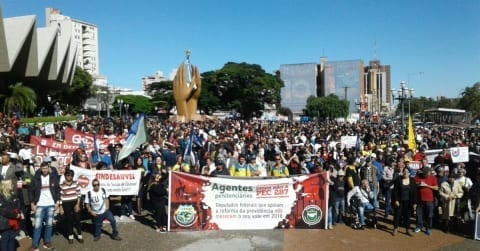
Thousands of Iraqi workers from a range of unions converged in Baghdad for a massive May Day celebration, where they rallied around messages emphasizing that the war on terrorism begins by eliminating unemployment, providing decent work opportunities and supporting national industries. Participants also expressed the need for workers to set the financial policies of the country, not international financial institutions. Credit: Solidarity Center/Wesam Chaseb
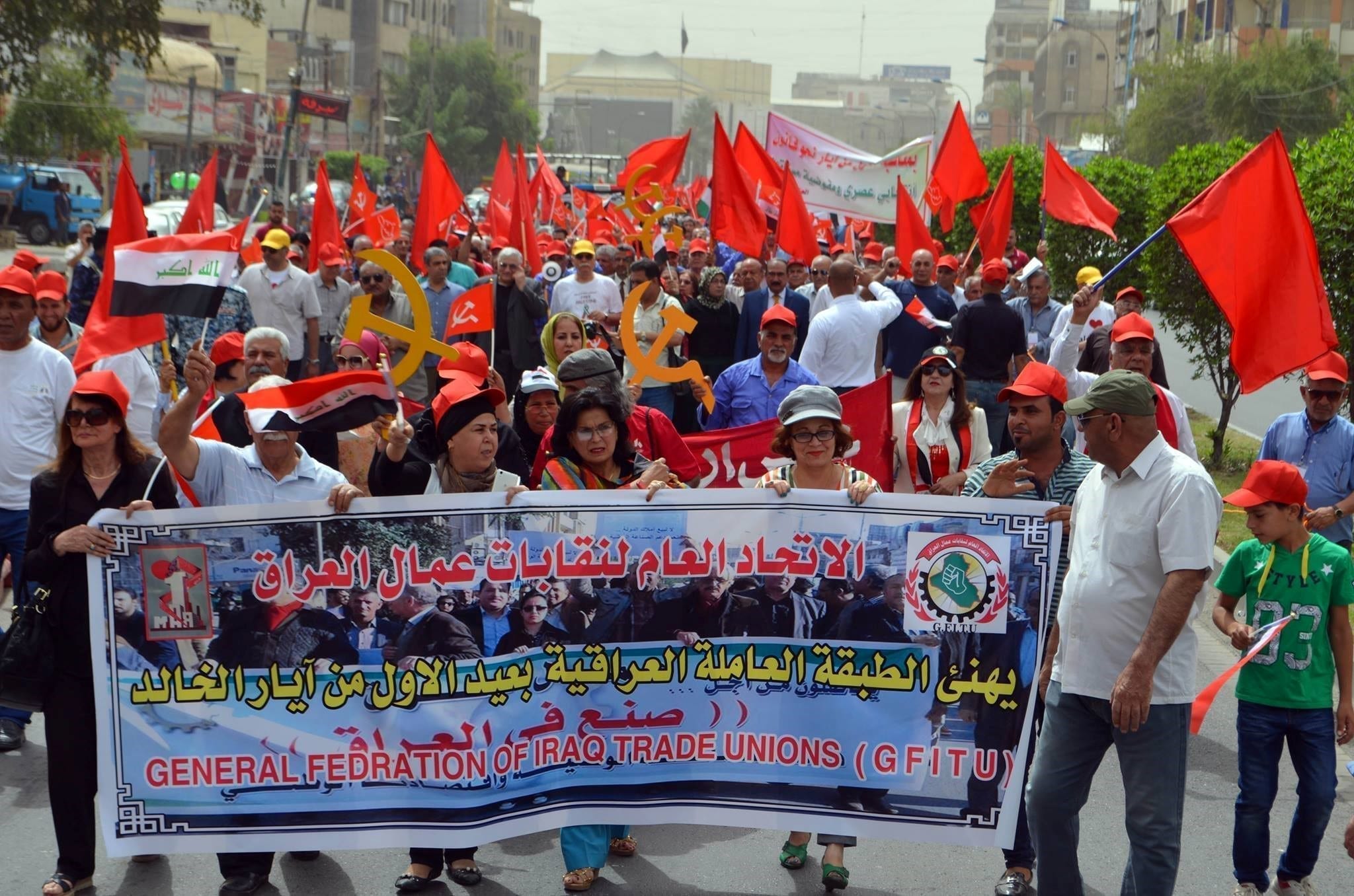
Members of the Pakistan Workers Federation (PWF) rallied in Islamabad, Lahore and other cities across the country to mark May Day. The PWF represents more then 880,000 workers nationwide.
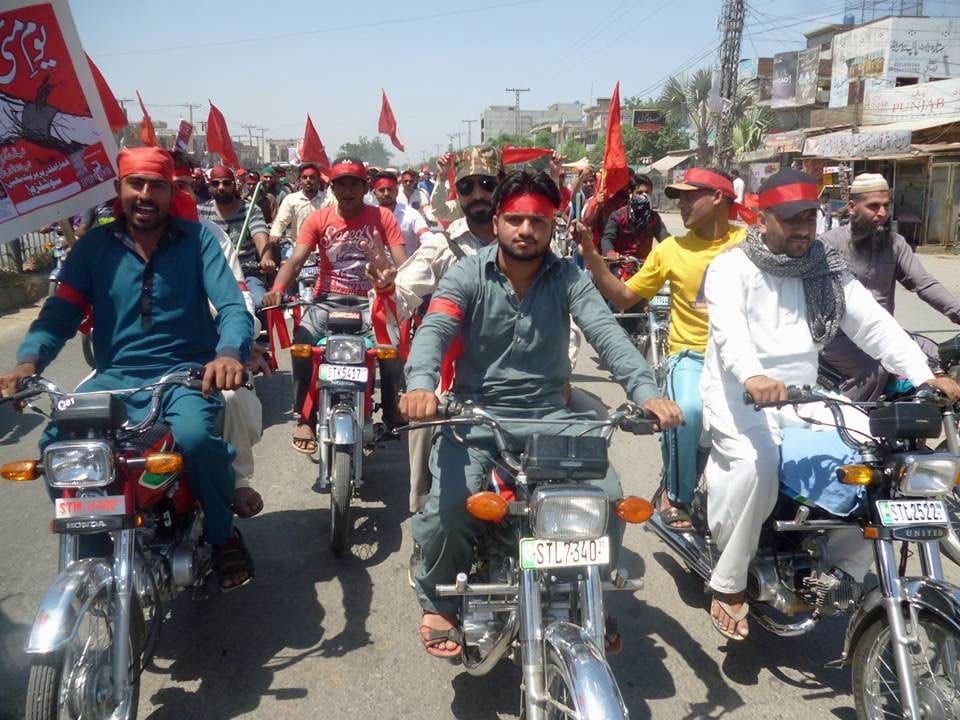
Andrea Nguyen
















